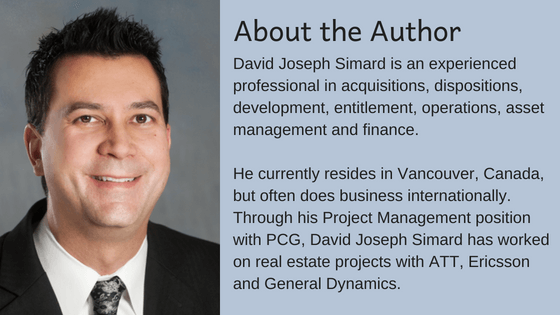
Best Designations in the Real Estate Industry
If you’re a professional in the real estate industry, there’s a chance you have initials after your name that indicate what certifications you’ve earned throughout your tenure. Some designations carry more weight than others for certain specialties, but there are some designations that stand out among the rest.
Project Management Professional (PMP) certification
Less than a million people across the globe have earned PMP certification, so the validation truly does differentiate you from other project managers. Because of the strategic and financial knowledge that come along with being PMP certified, project managers with this certification have an edge over other professionals competing for the same job. PMP certification is one of the most prestigious designations a real estate professional can earn.
Certified Property Manager (CPM) certification
Those with a CPM are experts in real estate management. Seventy percent of professionals with a CPM designation are at the highest management position in their office. To earn the CPM designation, you must pass the CPM certification exam and pledge to uphold the code of ethics.
Before applying, you must have 3 years of qualifying real estate management experience, certain professional affiliations and letters of recommendation.
Counselors of Real Estate (CRE) membership
For real estate counselors, being invited as a member of The Counselors of Real Estate is a high honor. To be invited, a prospective member must be recognized by their clients, employees and peers as an outstanding professional in the field with knowledge, integrity and good judgment. Candidates will have at least 10 years of experience in real estate, three of which are in counseling.
Certified International Property Specialist (CIPS) designation
CIPS is a members-only group with professionals across 45 countries. Those with CIPS certification specialize in global real estate after gaining knowledge through a variety of courses. International buyers tend to vary from those buying domestically, and the CIPS curriculum prepares real estate professionals by sharpening their global perspective.
Certified Real Estate Specialist (CRES) certification
A CRES-certified professional is acknowledged as having balanced knowledge in all areas of real estate. Top professionals can earn the certification when they’ve demonstrated experience, training, skills and commitment that goes beyond basic licensing requirements.
Your professional designation is a great way to showcase expertise in the industry and show the public that you take pride in your career. However, it’s important that you don’t put excessive focus on your designations. Your people skills, experience and professional courtesy may not be certifiable, but they are still an important part of your career that shouldn’t be overlooked.


5 Tips for Successful Networking
It is no secret that the best jobs in any industry are found through networking. As such, learning to craft and hone your networking skills can pay huge dividends down the road.
Effective networking is not about quantity. It is about the process of cultivating long-term business and personal relationships, born out of genuine connections and friendships.
Here are 5 tips to help you succeed at the networking game.
TURN ON YOUR LISTENING EARS
Although it is tempting to use your face time with somebody to primarily sell yourself, it is even more important to turn on your ears and be an active listener. By focusing on the other people in the room, you will be regarded as the most perceptive and engaged person of the group. The fool says what he knows, the wise man listens to what he doesn’t know.
ASK QUESTIONS
Related to developing listening skills, asking questions is an ideal way to draw people into your presence. Ask the questions first and then listen to learn. By following this practice, you will be able to discern what you can offer that person.
DON’T BE AFRAID TO GET PERSONAL
Before delving into the business talk, it is important to develop a personal connection. Share something unique about yourself that people will be likely to remember even when they leave the event. This openness will also encourage people to reciprocate, cultivating a lasting connection and further business opportunities down the road.
EXPAND YOUR CIRCLE
When trying to increase your reach, it is vitally important that you step outside of your normal comfort zone and approach people with different interests and background. Although it is natural to be drawn toward people that are similar to you, now is the time to step outside of your box and into unfamiliar territory. Don’t be the person who just socializes within their usual sphere of contacts.
FOLLOW UP
This last tip is crucial. It is imperative to keep the lines of communication open after the initial meeting. The myriad of social networking resources available in today’s business world makes staying connected incredibly easy to do. By continuing to stay in contact, you are sending the signal that you are open to new experiences and opportunities and that you are interested in what other people have to say and to offer.

Pros and Cons of Different Leadership Styles
A recent study indicates that only one in ten people have the skills to be a good manager. Knowing your leadership style can help you harness your strengths and avoid potential pitfalls, making you a more effective leader.
Here are 5 popular leadership styles and their effects on employees and the overall work environment.
Authoritarian (Autocratic)
An authoritarian – or autocratic – leader tells their subordinates the what, when, and how of everything that needs done. Most people have had at least one boss who they thought ruled with an iron fist, but this style is actually fairly uncommon. Although an authoritarian leadership style may be beneficial in select situations, it ultimately hinders day-to-day progress and can cause feelings of resentment among team members.
Democratic
In many ways, a democratic leader is the polar opposite of an authoritarian leader. A democratic leader includes employees in the decision-making process. On one hand, it is beneficial because employees may feel obligated to make sure an idea works if they had a say in the decision to implement it, leading to more engagement. It is also a good way to hear and evaluate all the best ideas in the room. On the other hand, a democratic leader is generally uncomfortable making quick decisions independently, and this can hinder progress.
Affiliative
An affiliative leader puts the wellbeing of employees above anything else. Staff run by an affiliative leader tend to feel valued and appreciated in the workplace, leading to greater overall satisfaction. When employees are happy, they’re likely to stay at their job longer. Low turnover rates are incredibly beneficial for the productivity of an organization. The drawback of this leadership style is that employees could become complacent with constant positive feedback. A balance of constructive criticism is necessary for improvement, and affiliative leaders tend to avoid conflict.
Visionary
A visionary leader helps their employees to see future goals and remained focused. These leaders are often skilled at “rallying the troops,” and getting everyone in the mindset to achieve tasks. A visionary leader promotes innovation and learning in the effort to reach a common goal. The downside is that pressing problems may get pushed to the backburner if a leader is too focused on what lies ahead.
Coaching
A coaching leader puts energy into building skills and confidence in their employees. It’s the kind of leader who would teach someone to fish instead of just providing someone with a fish for one meal. With this leadership style, employees are often satisfied in their jobs and driven to succeed. In the long term, a coaching leader can mold a group of competent, experienced individuals. Assuming the leader is capable of teaching and the employees are willing to learn, it is a very effective leadership style.
About David Joseph Simard
David Joseph Simard is currently a private real estate development and construction consultant based out of Vancouver, British Columbia, one of Canada’s most desirable housing and commercial real estate markets. While paving an unconventional path to his successful career in real estate, Simard has found ways to incorporate his varied experience and education throughout each new project. In addition to the success he’s seen with his own consulting business, David Joseph Simard has also found ways to use his expertise to give back to various public and non-profit organizations. Some of these initiatives include an appointment as the founding President of the Canada Nevada Business Counsel and his service to the Board of UNLV’s School of Business.
Before settling down in Vancouver, David Joseph Simard first found his enthusiasm for real estate and new construction development at the University of Windsor, in Windsor Ontario. Here, Simard studied both industrial psychology and history/international relations. This trend in multi-disciplined education would continue for Simard, as his path then took him down to East Lansing, Michigan. At Michigan State University, he would go on to receive two Bachelor of Arts degrees in both industrial psychology and history/international relations. Forever the proud Spartan, Simard moved ahead with his pursuit of acquiring a Juris Doctorate from MSU, recognized as the highest level of education available in the United States’ legal sector.

It was by total happenstance that David Joseph Simard found his first part-time job in real estate while still in school. This wouldn’t be considered the most relevant job for an international relations major. But, Simard found a fast affinity for his work as a real estate broker and later moved on to the next phase of his career, transitioning to real estate development. Simard didn’t realize at the time that he was beginning a career in the industry that would span nearly 30 years. His path eventually led to the international real estate industry and consulting Fortune 500 companies, keeping their multi-million dollar projects on time and under budget.
David Joseph Simard‘s current role finds him continuing his consulting services for global companies, some of which include General Dynamics, Ericsson, and AT&T. Simard’s varied expertise lends his consulting services in legal, financial, and business operations, while providing turnkey real estate project management solutions. Seeing a new construction project begin to take shape is what has kept Simard on this path. The capability to see a project to completion through all areas of a commercial and residential real estate development has enabled Simard to make his mark throughout the industry. When working with Simard, his clients have echoed the same positive experiences of having worked with a unique talent that can guide them through the full life cycle of a project and across all phases.
In addition to his other public service efforts, David Joseph Simard has also served the Boards of the Lied Institute for Real Estate, NDA, and NAIOP. When spending time outside of his professional path, Simard is a wine enthusiast that you may likely find attending a wine tasting at one of Vancouver’s fine vineyards. He also enjoys more strenuous outdoor activities like snowboarding, skiing, and hiking.
